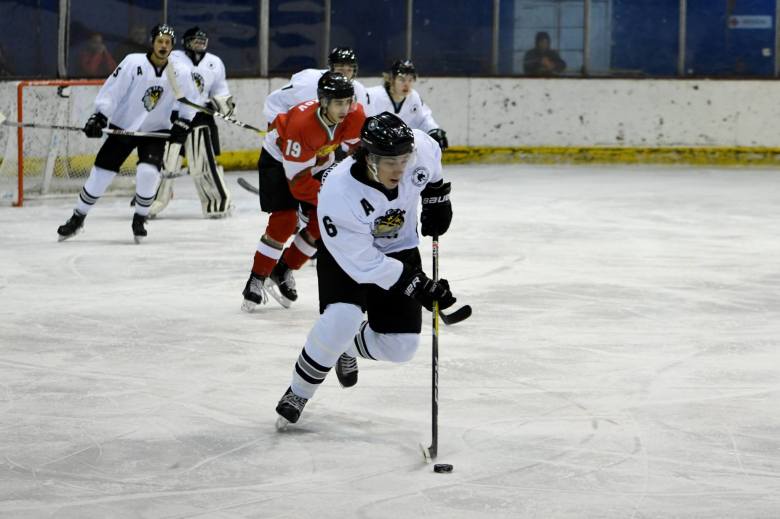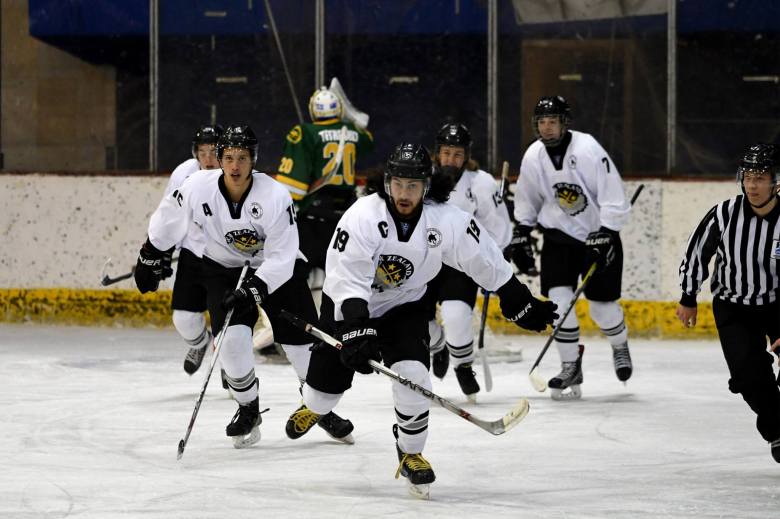Last week New Zealand’s Junior Ice Blacks competed at the 2018 IIHF Under-20 World Championship in Bulgaria where they would finish last – losing all five games by a combined score of 40-11. That’s not a pretty bottom line by any standards, so what happened?
They weren’t going into it unprepared. Prior to arriving in Bulgaria, first-year head coach Justin Daigle had the team working through line combinations with a few days of training camp in Latvia – culminating in warm-up games against local hockey clubs from Tukums and Riga which Daigle and his coaching staff used as an opportunity to film and highlight aspects of the team’s play that can be improved.
From the video updates posted on the ‘New Zealand U20 Ice Hockey National Team’ Facebook group it looked like the team were coming into the tournament feeling good about their preparations and the week ahead of them.
Game 1: NZ vs Bulgaria
In their first game of the tournament New Zealand faced Bulgaria with an excited home crowd in attendance ready to cheer on the Bulgarians. Those fans were quickly silenced when NZ alternate captain Felipe Aguirre-Landshoeft put a soft shot past Bulgaria’s Ivan Stoynov for a 1-0 lead thirteen minutes into the first period – but two goals fifteen seconds apart put the home team ahead as the intermission approached.
New Zealand would go on to lose 5-3, however it was arguably their most competitive outing of the five games as they were never truly out of the contest. Several players showed promise including forward Luke Hill who tallied two goals, one of which was shorthanded, and goalie Taylor Goodall who stopped a few strong scoring chances that could have seen the final score higher than it was.
I will admit that due to the time differences between Auckland and Sofia, this was the only game I was able to watch completely – in fact I was making GIFs of highlight plays from that game and posting them to Puck Yeah’s Twitter as they happened. All the other games were at 3:30am and when you’re writing about hockey on a part-time basis around your sports TV day job, sometimes sleep prevails.
Aside from a powerplay that failed to punish the Bulgarians for a few lazy penalties, including one too many men infraction, the signs were there that this young team could be competitive and bounce back – I liked what I saw.

Game 2: NZ vs Australia
While the Australians aren’t considered New Zealand’s biggest rival when it comes to hockey, in the general sporting landscape they are and any loss to them always stings – going down 6-3 here is no exception.
Again NZ showed by opening the scoring that they don’t have trouble “starting the game on time” as Mike Babcock would put it, this time at the hands of captain Shaun Brown and assisted by Aguirre-Landshoeft.
The score sheet alone would suggest that this game followed a similar script to game 1 with Australia taking the lead as the first period wound down, only to have NZ come close to tying the score as Ryan Martinoli made it 4-3 halfway through the third. Australia answered backed with two more to close it out.

Game 3: NZ vs Iceland
This is where the campaign started to come undone for New Zealand as they took a heavy 13-3 loss. Iceland were ahead 6-0 eight minutes into the second period before NZ forward Matheson Graham scored his first of the tournament. The powerplay also continued to struggle aside from Mak Rawiri’s effort assisted by Martinoli and Hill.
Honestly I don’t have much else to say about this game – I don’t want to pile on. I’ve been on the receiving end of games like this and it’s not fun.
Side note: I really wanted to make use of advanced stats for this article, where I would calculate each player’s Game Score to determine who had the best performances per game, however it appears the IIHF don’t believe in #fancystats – they don’t track blocked shots, let alone Corsi differential. So some of this information comes purely from the official game sheet but the names that do pop up were largely the standout performers for New Zealand.

Game 4: NZ vs China
China are very impressive. I remember watching their 2015 Under-20 side in Dunedin, NZ and being blown away by the skill and speed of their players, it was definitely at a level higher than most within the IIHF’s third division – they were promoted that year.
New Zealand would loss 11-2, at one point China jumped ahead with ten unanswered goals. I think we can skip this one.

Game 5: NZ vs Israel
As the most dominant team of the tournament Israel had clinched the gold medal placing before playing this fifth game, but they proceeded to shutout New Zealand 5-0 and gain promotion to Division 2 – Group B.
Considering the score line of their previous two games, the Junior Ice Blacks did well to focus whatever energy they had left on this final game and try turn things around within the tight timeframe of a IIHF World Championship.
However as a result of their 0-5 record, New Zealand were relegated to the IIHF Under-20 Division 3 qualification group. The 2018 tournament is underway next week where the winner of South Africa, Chinese Taipei, or debutants Turkmenistan will take the spot in 2019’s Division 3 World Championship made vacant by said relegation.
By the end of the week, the team’s special teams were a 9.68 PP% and 62.07 PK% – a tournament worst in both categories.

The bright side in all of this was the play of team MVP Luke Hill; finishing the week with 3 goals, 2 assists.
His shorthanded goal in the opening game against Bulgaria was a highlight worth watching on repeat. The backhand to forehand deke is a relatively simple move but the way Hill pulls it off to fool the goaltender shouldn’t be taken for granted. He could become an offensive weapon for the Canterbury Red Devils in years to come – a scary thought considering they also have Chris Eaden.
A couple of factors do work against this side: cost and time.
In the weeks leading up to the tournament the coaching staff aren’t afforded more time to spend in training camp as days are lost with the long travel – the obvious jet lag included. The inefficiency of New Zealand’s powerplay and penalty-kill would suggest that more ice time was needed to properly establish the right chemistry and have those units clicking.
The sheer cost of traveling such distances can sometimes mean players don’t even make it on the plane, therefore the best players aren’t always available. This is an issue that has impacted New Zealand’s national ice hockey teams, no matter what age group or gender, for years.
Keep in mind that in New Zealand, ice hockey is completely amateur and receives no funding from High Performance Sport NZ. With the help of many generous volunteers and local communities, the New Zealand Ice Hockey Federation do well to send their teams overseas every year.
I can’t imagine New Zealand stays in the qualification group for too long, perhaps only 2019. This result alone isn’t a reflection on the players or coaching staff – the sample size is too small to make such a strong judgement and having witnessed the potential of both parties, it’s only a matter of time before fans see more positive results if they can manage to address the issues that are holding them back.
And if it makes you feel any better, Australia didn’t do that great either.
(All photos by Josh Fraser)
